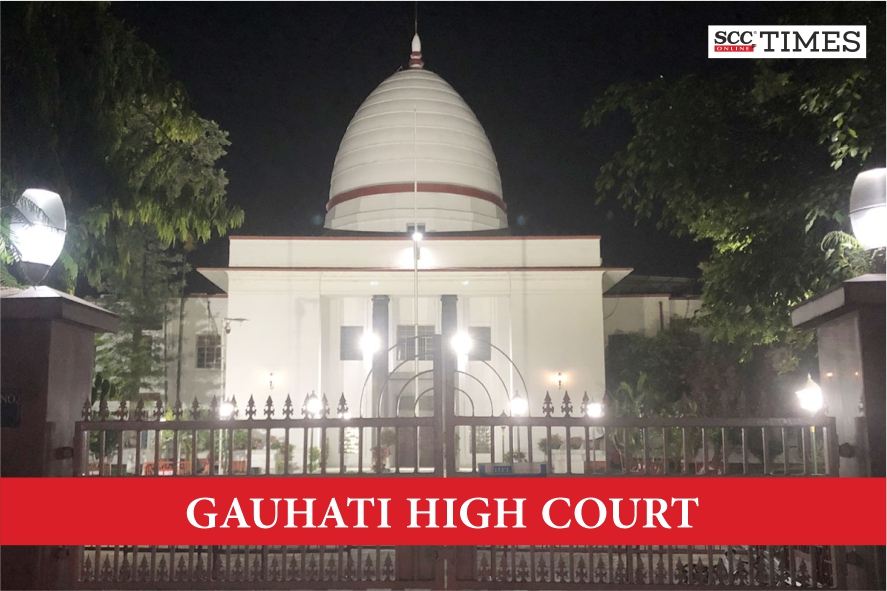Gauhati High Court: Petitioner filed the present petition being aggrieved by the order issued by the Deputy Inspector General, Group Centre, CRPF, whereby, petitioner’s resignation was accepted w.e.f. 04-08-2012. Petitioner prayed for a direction to respondent to constitute a Medical Board for examination of his disease and then allow to go on retirement on medical ground since he had already completed the required qualifying service. A Single Judge Bench of Kardak Ete, J., stated that the resignation letter was neither ambiguous nor conditional and thus, there was no illegality in accepting petitioner’s resignation and if a letter of resignation was coupled with a condition, the same could not be accepted by the authority without first informing the employee that the condition put forth by him could not be accepted. The Court held that no case was made out for interference to the impugned acceptance of petitioner’s resignation and his discharge from service.
Background
Petitioner was inducted as Constable in CRPF on 06-08-2000 and in 2008 while he was posted at Guwahati, he was diagnosed with ‘Low Backache’. Thus, due to frustration owing to prevailing circumstances and because of his ill health, he had prayed for constitution of medical board to examine his illness, otherwise, his resignation might be accepted vide his letter dated 27-07-2012 as he was already diagnosed with P3(P) disease, which was incurable. He submitted that respondent without constituting the medical board had recommended his letter of resignation for acceptance. Accordingly, petitioner was discharged from his service by accepting his resignation w.e.f. 04-08-2012 for which he would not be entitled for retirement benefit, including pension although petitioner had completed the required qualifying service for entitlement of all the retirement benefits.
Analysis, Law, and Decision
The Court noted that the letter relied upon by petitioner reflected that he had requested for production before the medical board for medical examination as early as possible, otherwise his resignation might kindly be accepted and the letter of resignation relied on by respondents which was handwritten was different one which showed that since petitioner was not able to look after the family and due to medical category under P3(P), he was compelled to resign from the post.
The Court stated that there was a difference in the resignation letters that was relied on by both the parties and thus opined that it appeared that petitioner had retyped his resignation letter by way of improvement as the original letter titled as ‘Regarding Resignation from Service’ submitted to respondent was hand-written, with different sentence and meaning.
The Court noted that respondent had constituted Departmental Rehabilitation Board for 7 Force personnel including petitioner and he was examined and placed under P3(P) and referred to the authority concerned for Departmental Rehabilitation Board. Though counsel for petitioner argued that petitioner was not intimated regarding constitution of Board, however, record indicated that petitioner was examined before submission of his resignation letter dated 27-07-2012.
The Court stated that the letters were neither ambiguous nor conditional and thus, there was no illegality in accepting petitioner’s resignation w.e.f. 04-08-2012 by respondent. The Court opined that the resignation could be accepted only when it was clear, unambiguous, unequivocal, and not conditional. If a letter of resignation was coupled with a condition, the same could not be accepted by the authority without first informing the employee that the condition put forth by him could not be accepted.
The Court stated that in the present case, the resignation letter dated 27-07-2012, submitted by petitioner, apart from being clear and unambiguous, could not be held to be a conditional one.
The Court noted that counsel for respondent submitted that since petitioner had only completed 12 years 2 months of service at the time of resignation, he was not entitled for pension as envisaged under Rule 26(1) of Central Civil Pension Rules, 1972 as he did not complete the qualifying service of 20 years in the Force. The Court observed that Rule 26 provided that upon resignation, an employee forfeits past service. Since, petitioner had not taken the plea of such issue in the present case, considering the specific grievance raised by petitioner was regarding resignation and its acceptance only, the issue of applicability of Rule 26 need not be gone into.
The Court held that no case was made out for interference to the impugned acceptance of petitioner’s resignation and his discharge from service. The Court thus dismissed the petition.
[Rangan Kr. Nath v. Union of India, WP(C) 196 of 2016, decided on 27-08-2024]
Advocates who appeared in this case:
For the Petitioner: R Gogoi, B Gogoi, Parag J Saikia, Counsels
For the Respondent: G Pegu, CGC; Asstt. SGI






